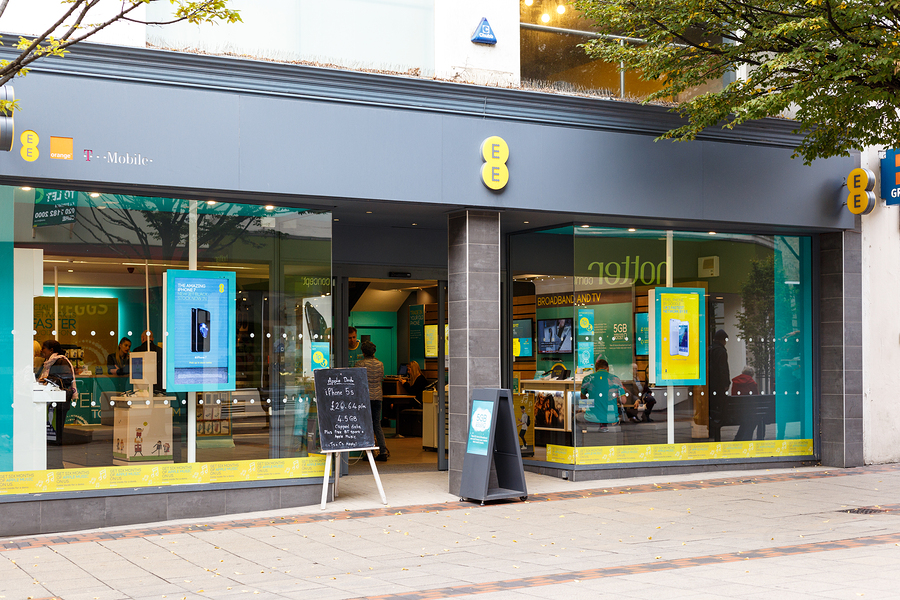Ofcom releases not-spot report
The regulator has warned of the implications of not getting the right mobile coverage for all.


Whilst mobile network coverage in the UK stands tall, there are still a significant number of areas with low connectivity.
This was the conclusion of a new report by Ofcom, which has admitted whatever regulations it imposes, some areas will still remain without coverage.
"We are required to secure the availability throughout the UK of a wide range of electronic communications services and the optimal use of spectrum," said the report.
"However, even in using our regulatory powers, it is still likely that there could be areas left without mobile coverage (that is, it is unlikely there will be 100 per cent geographic coverage)."
2G coverage across the UK was very high, with 97 per cent of the population and 91 per cent of land mass having access.
This dropped dramatically for 3G coverage though, with just 87 per cent of the population and 76 per cent of land mass being covered.
"We also know 2G and 3G coverage levels are lower in Scotland,
Get the ITPro daily newsletter
Sign up today and you will receive a free copy of our Future Focus 2025 report - the leading guidance on AI, cybersecurity and other IT challenges as per 700+ senior executives
Wales and Northern Ireland compared to English regions," added the report, naming the lowest 3G coverage region as Northern Ireland with only 40 per cent coverage.
Whilst many have cited planning and technical issues for holding back roll out, Ofcom didn't believe this was an issue for fixed locations.
The regulator did, however, claim it was a problem for coverage on the move, such as on trains.
"Some mobile operators are looking to install repeaters' on newer trains to help carry mobile signals into train carriages, but progress is slow," the report said.
Implications for business
In the report, Ofcom made clear what implications it felt a lack of coverage could have on various sectors of society.
When it came to businesses, the report said: "Concerns [for companies] include loss of workforce efficiency [and] a growing problem given the innovations in mobile data services and applications."
"Rural businesses expressed significant concerns about local coverage issues. These were felt in terms of both conducting day-to-day business activities and ensuring the safety of staff working in isolated jobs such as farming."
For individuals the report claimed the lack of being able to make or change plans on the move was a big concern and, for society as a whole, there was unease about citizens being unable to contact emergency services.
Ofcom said it would continue to research into the area of mobile connectivity, help to improve consumer information and work with partners to increase coverage on rail networks. It also pledged to move the freeing up of spectrum forward and to continue to engage with the Government over not-spot issues.
Jennifer Scott is a former freelance journalist and currently political reporter for Sky News. She has a varied writing history, having started her career at Dennis Publishing, working in various roles across its business technology titles, including ITPro. Jennifer has specialised in a number of areas over the years and has produced a wealth of content for ITPro, focusing largely on data storage, networking, cloud computing, and telecommunications.
Most recently Jennifer has turned her skills to the political sphere and broadcast journalism, where she has worked for the BBC as a political reporter, before moving to Sky News.
-
 Cleo attack victim list grows as Hertz confirms customer data stolen
Cleo attack victim list grows as Hertz confirms customer data stolenNews Hertz has confirmed it suffered a data breach as a result of the Cleo zero-day vulnerability in late 2024, with the car rental giant warning that customer data was stolen.
By Ross Kelly
-
 Lateral moves in tech: Why leaders should support employee mobility
Lateral moves in tech: Why leaders should support employee mobilityIn-depth Encouraging staff to switch roles can have long-term benefits for skills in the tech sector
By Keri Allan
-
 New Ofcom guidelines show it’s getting tougher on big tech
New Ofcom guidelines show it’s getting tougher on big techNews New Ofcom guidance outlining its plans for the Online Safety Act show the regulator is toughening up on big tech.
By Emma Woollacott
-
 Ofcom’s draft guidelines on illegal online content set stringent rules for big tech
Ofcom’s draft guidelines on illegal online content set stringent rules for big techNews The codes of practice gives an insight into what the Online Safety Act will mean in practice
By Ross Kelly
-
 UK gov urged to ease "tremendous" and 'unfair' costs placed on mobile network operators
UK gov urged to ease "tremendous" and 'unfair' costs placed on mobile network operatorsNews Annual licence fees, Huawei removal costs, and social media network usage were all highlighted as detrimental to telco success
By Rory Bathgate
-
 UK regulator to investigate Amazon, Microsoft, Google cloud services competition
UK regulator to investigate Amazon, Microsoft, Google cloud services competitionNews The regulator is hoping to publish a final report, including its concerns or proposed recommendations, within 12 months
By Zach Marzouk
-
 We're addicted to our phones, according to Ofcom
We're addicted to our phones, according to OfcomNews Although always being connected means flexible working, some think it's having a negative impact on relationships
By Clare Hopping
-
 Ofcom reveals automatic compensation for ripped-off broadband customers
Ofcom reveals automatic compensation for ripped-off broadband customersNews £142 million will be automatically paid out to customers receiving a delayed service
By Clare Hopping
-
 Three fined £1.9m for 999 call flaw
Three fined £1.9m for 999 call flawNews Ofcom investigation reveals emergency calls were routed through a single data centre
By Dale Walker
-
 Ofcom fines EE £2.7m for overcharging 40,000 customers
Ofcom fines EE £2.7m for overcharging 40,000 customersNews Customers dialling 150 number abroad were overcharged £245,700
By Joe Curtis